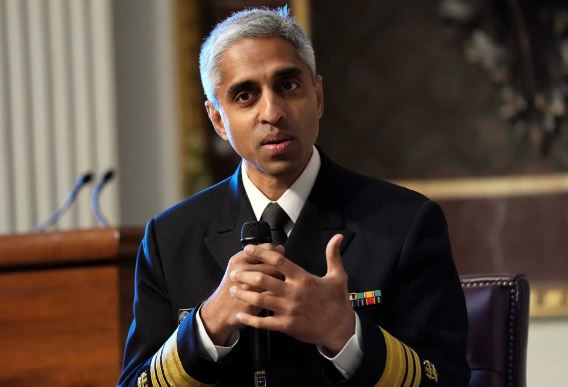The U.S. surgeon general, Dr. Vivek Murthy, announced on Monday his intention to advocate for a warning label on social media platforms to caution parents about the potential mental health risks for adolescents. These warning labels, akin to those on tobacco and alcohol products, are a potent tool for public health officials but require Congressional approval to be implemented.
Dr. Murthy’s proposal is a continuation of his ongoing efforts to address the mental health challenges posed by social media. In a May 2023 advisory, he urged parents to impose immediate restrictions on phone usage and called for Congress to develop health and safety standards for technology platforms. He also pressed tech companies to share internal data on their products’ health impacts, allow independent safety audits, and limit features like push notifications, autoplay, and infinite scroll, which he claims exploit developing brains and lead to excessive use.
Dr. Murthy expressed frustration with the tech industry’s reluctance to self-regulate. Despite this, he remains optimistic that legislators will propose a bill requiring warning labels on social media platforms.
This push for a warning label sets the stage for a potential clash between the Biden administration and the tech industry. Tech companies, likely to resist the initiative, may argue that the science on social media’s harmful effects is inconclusive and that mandated warning labels would violate free speech laws. Adam Kovacevich, CEO of the tech lobbying firm Chamber of Progress, likened it to the Trump administration demanding warning labels on mainstream media for “fake news,” calling it an abuse of government power.
The tech industry might find sympathetic ears in the judiciary, given recent trends of judges being less deferential to public health regulations. Claudia E. Haupt, a law professor at Northeastern University, noted that cigarette companies have successfully used First Amendment arguments to avoid graphic warnings on tobacco products for over a decade.
Major social media platforms, such as TikTok, YouTube, and X, have not commented on Dr. Murthy’s proposal. However, it has garnered support from Senators Richard Blumenthal and Marsha Blackburn, who co-authored the Kids Online Safety Act, which aims to protect minors on social media but does not mandate warning labels. They praised the surgeon general for highlighting the harmful impacts of social media on children.
Historically, warning labels have significantly influenced behavior. In 1965, following a report from the surgeon general, Congress required cigarette packages to carry health warnings, leading to a substantial decline in smoking rates over the next five decades.
The debate on social media’s role in the mental health crisis among youth is ongoing. Social psychologist Jonathan Haidt, in his book “The Anxious Generation,” links the rise of smartphones to increased suicidal behavior and despair among adolescents. Conversely, other experts argue that while social media’s rise coincides with mental health declines, causation isn’t clear, pointing to factors like economic hardship, social isolation, racism, school shootings, and the opioid crisis.
In a New York Times opinion essay, Dr. Murthy cited research showing that teens spending more than three hours daily on social media are at a higher risk of mental health issues, with nearly half feeling worse about their bodies due to social media. A Gallup survey found that U.S. teens average 4.8 hours per day on platforms like YouTube, TikTok, and Instagram.
Dr. Murthy emphasized the addictive design of social media, which maximizes user time, disproportionately affecting adolescents whose impulse control and brain development are still in progress. He has compared the urgency of addressing social media’s risks to historical public health battles, advocating for swift action based on the available evidence.
Dr. Murthy concluded that the current evidence justifies action to make social media platforms safer for adolescents, emphasizing the need for immediate intervention despite the lack of perfect information.

